
January 31, 2022, by Sarah
On trial: Adam Matthew collections
Until 4 April, Adam Matthew have opened up extended access to the following collections:
- Defining Gender, 1450-1910
- East India Company
- Empire Online
- Foreign Office Files for India, Pakistan, and Afghanistan 1947-1980
- Macmillan Cabinet Papers, 1957-1963
- Mass Observation Online, Modules I-IV
- Mass Observation Project, 1981-2009
- Medieval Travel Writing
- Research Methods Primary Sources
Defining Gender, 1450-1910 explores the study and analysis of gender, leisure and consumer culture. It includes primary source material from British archives and is of interest to users studying history, literature, sociology, education and cultural studies from a gendered perspective.
Documents are organised from selected libraries into the following themes to facilitate comparative study and research:
- Conduct and Politeness
- Domesticity and the Family
- Consumption and Leisure
- Education and Sensibility
- The Body
East India Company offers access to the East India Office records from the British Library, and charts the history of British trade and rule in the Indian Subcontinent from 1599-1947. It includes royal charters, trading diaries and reports of expeditions.
Topics covered include
- Agriculture
- Courts and legal affairs
- Finance and debt
- Pay and pensions Company servants and family
- Welfare and military matters
Empire Online brings together manuscripts, printed and visual primary sources for the study of “Empire”. It covers five centuries of material, and includes scholarly essays, maps, and interactive chronology.
Discover key dates and events in history, or browse the image gallery to discover paintings, drawings, postcards, posters, and maps within the collection.
The Foreign Office files for India, Pakistan, and Afghanistan 1947-1980 collection comes from the Foreign Office and Dominions Office and focuses on political and social history of the three countries. It includes events such as the Indian annexation of Hyderabad and Goa, military rule in Pakistan and the development of nuclear weapons in the region.
The collection looks at events from the standpoint of British officialdom, dealing with issues such as education, conflict over language, aid, and political parties. It is a fundamental resource for scholars and students of modern South Asia
Macmillan Cabinet Papers, 1957-1963 provides complete coverage of the Cabinet conclusions (minutes) (CAB 128) and memoranda (CAB 129) of Harold Macmillan’s government, plus selected minutes and memoranda of policy committees (CAB 134).
The Cabinet conclusions are taken by the secretary of the Cabinet or one of their assistants and consist of summaries of all discussions in Cabinet, together with a note of decisions reached. Cabinet memoranda consist of all papers circulated to members of the Cabinet and to other ministers for information or as a basis for discussion. These classes provide a distillation of the work of all the other departments of government, ranging in subject matter from agricultural policy and trade to nuclear policy and issues of international diplomacy.
This collection also includes 165 files from the Prime Minister’s Private Office (PREM 11). These provide an important supplement to the Cabinet records and cover all aspects of policymaking.
Mass Observation Online, Modules I-IV offers access to a key archive for the study of social history. The material covers the:
- end of the ‘Hungry Thirties’ when the impact of the Depression was still being felt;
- onset of war, the Blitz and war on the home front;
- post-war world, with the rise of consumerism and television.
The archive evidence of major trends such as the increasing role of women in work, the birth of the welfare state, antisemitism and anti-communism, the growth of secularism and the increasing importance of radio, television and cinema in people’s lives, as well as insight into such subjects as abortion, old age, eating habits, shopping, fashion, coal mining, sex, reading, and the decline of Empire. Through interviews, overheard conversations, directive responses and diary entries it offers cameos describing life in the jazz halls, what people thought of the movies they saw, how people survived the terror of the Blitz, and where they lived and worked.
The archive features:
- a complete set of the File Reports, 1937-1951, with full-text searching ability
- access to all of the Day Surveys 1937-1938, Directives 1939-1955 and Diaries, 1939-1967
- topic Collections 1937-1965, with full-text searchability
- the ‘Worktown Collection’
- Mass-Observation Publications
- eighteen contextual essays by leading scholars describing the archive and suggesting research and teaching strategies, and four occasional papers
- photographs by Humphrey Spender, an interactive map and chronology, and much valuable supporting material
Mass Observation Project, 1981-2009 was launched in 1981 by the University of Sussex as a rebirth of the original 1937 Mass Observation. Its aim was to document the social history of Britain by recruiting volunteers to write about their lives and opinions. Still growing, it is one of the most important sources available for qualitative social data in the UK. This collection consists of the directives (questionnaires) sent out by Mass Observation in the 1980s and 1990s and the thousands of responses to them from the hundreds of Mass Observers. Topics covered are wide-ranging, from the deeply personal (sex, family) to everyday life (shopping, holidays), to global affairs. The digitized printed directives, prose responses to directives, newspaper cuttings, photographs, leaflets and other ephemera cover key themes in current affairs, family, home; leisure; politics, society, culture and the media, and work, finance and the economy.
Medieval Travel Writing is an extensive collection of manuscript materials from libraries around the world, dating from the 13th to the 16th centuries, with a focus on accounts of journeys to the Holy Land, India and China.
These sources provide insight into the attitudes and preconceptions of people across Europe in the medieval period, shedding light on issues of race, economics, trade, militarism, politics, literature and science. Topics covered include: pilgrimage, the origins of global trade, travels to the Holy Land, the Silk Road, and the representation of the ‘East’ and the ‘Other’ in the Middle Ages.
The collection combines multiple manuscript sources, detailing the journeys of famous travellers from Marco Polo to John Capgrave, and the stories of legendary figures such as Prester John and Sir John Mandeville, with translations, route maps and introductory essays.
Research Methods Primary Sources is an online learning tool designed to support students of the humanities and social sciences. It introduces the key approaches to working with source materials and historical evidence.
This resource includes almost 200 hundred essays, videos, ‘How to’ guides and case studies by subject specialists which answer questions about working with primary sources. From guidance on where you can find historical documents, to the questions you might want to pose and how best to approach analysing the content they hold, this platform gathers together practical advice and instruction from experts working around the world”
Do let us know what you think. Please send your feedback to the Libraries Collections Team: collections@nottingham.ac.uk
No comments yet, fill out a comment to be the first

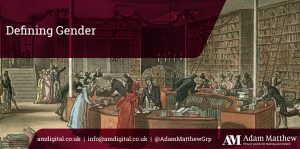

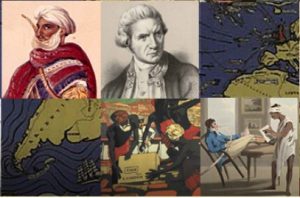
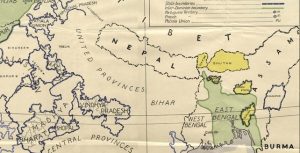
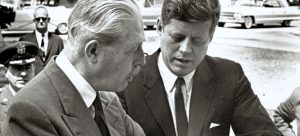
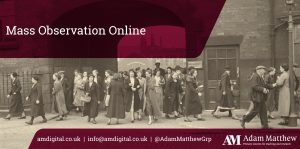

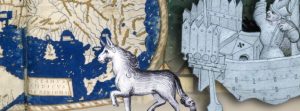
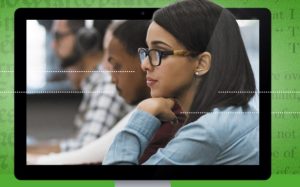
Leave a Reply